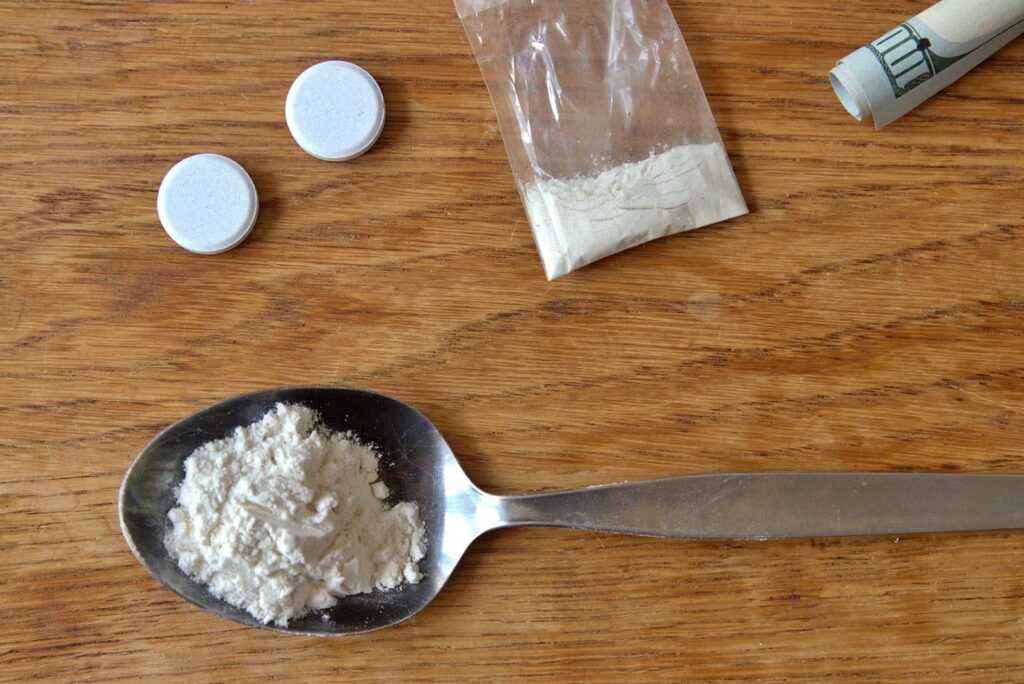Stimulant Addiction Treatment in New Hampshire
If you’re living in New Hampshire and struggling with stimulant addiction, you’re not alone. The first step to recovery is acknowledging the problem and reaching out for help.
Stimulant addiction is an ongoing concern in the United States, with more than 10% of adults dealing with some form of stimulant addiction.
In New Hampshire, the situation is particularly dire. A 2023 report from the New Hampshire Department of Health and Human Services reveals that 16% of adults in New Hampshire are struggling with stimulant addiction—more than 5% higher than the national average.
If you or a loved one is struggling with stimulant addiction, help is within reach. This post discusses everything you need to know about stimulant addiction treatment in New Hampshire, including the types of programs available.
How Prevalent Is Stimulant Addiction in New Hampshire?
Despite efforts to combat the problem, stimulant addiction continues to be a significant concern in New Hampshire.

Recent data from the NH Drug Monitoring Initiative shows that while treatment admissions for opioids/opiates decreased by 16% from 2022 to 2023, there was a worrying 50% increase in admissions for methamphetamine.
These trends are especially troubling given the rising drug overdose deaths in the state.
New Hampshire recorded 434 confirmed drug overdose deaths in 2022, with Coos Country leading in overdose deaths per capita (6.97 deaths per 10,000 population). This is closely followed by Hillsborough County with 4.16 overdose deaths per 10,000 population.
Many of these deaths involve stimulants like fentanyl, cocaine, heroin, methamphetamine, and prescription pharmaceuticals such as Adderall and Ritalin.
As a reference, the national average number of deaths per 10,000 population is 2.16 (21.6 deaths per 100,000 residents). This means that New Hampshire’s overdose rate is more than twice the national average.
What Are Stimulants?
Stimulants are a class of drugs that increases the activity of the central nervous system (CNS), resulting in increased alertness, attention, and energy, among others.
Stimulants are broadly categorized into three main groups: prescription stimulants, over-the-counter stimulants, and illicit stimulants.
Prescription Stimulants
Prescription stimulants are medications prescribed by healthcare professionals.
They’re commonly used to treat attention deficit hyperactivity disorder (ADHD), depression, narcolepsy, and other mental health disorders.
Examples include methylphenidate (Ritalin, Concerta), amphetamines (Adderall, Dexedrine), and diet aids (Didrex, Fastin, Meridia).

Over-the-Counter (OTC)
Over-the-counter (OTC) stimulants can be purchased without a prescription. They’re used to alleviate symptoms of fatigue, improve alertness, or aid in weight loss.
Caffeine pills and allergy medications containing pseudoephedrine or ephedrine are examples of such stimulants.
Illicit Stimulants
Illicit stimulants aren’t legally available to the public. They’re often abused for their stimulating effects, which can include increased energy, euphoria, and heightened alertness.
Illicit stimulants include ecstasy, methamphetamine, and synthetic cathinones, commonly known as bath salts. Cocaine and amphetamines were once used medicinally until their addictive properties were deemed unsafe for use in any situation.
These stimulants are highly addictive and can lead to a range of negative health effects, including psychiatric disorders, cardiovascular disorders, cognitive impairment, and overdose, which can be fatal.
What Causes Stimulant Addiction?
Stimulant addiction can stem from a combination of biological, psychological, and social factors. Among the most common contributors include:
Feel-good Effects
More often than not, people turn to stimulants because they want to get “high.”
They hear about the euphoric effects that stimulants create, either through word of mouth or amongst their peers, and feel compelled to try them out for curiosity’s sake.
Many people believe that only weak-willed individuals succumb to addiction, telling themselves that they won’t fall into that trap. They’d try it once, twice, then three times, and before they know it, they’re caught in the grip of addiction, unable to break free from its hold.
Mental Health Conditions
More than 20% of people suffering from addiction are battling mental health disorders such as depression, anxiety, bipolar disorder, or attention deficit hyperactivity disorder (ADHD).

Stimulants temporarily alleviate feelings of depression and fatigue, replacing it with a euphoric sensation.
People with mental health disorders find solace in this temporary escape. This cycle of seeking relief can quickly spiral into addiction, causing them to be dependent on the drug to cope with their emotional and psychological challenges.
Genetic Vulnerability
Genetic factors can influence an individual’s susceptibility to stimulant addiction, according to the Genetic Science Learning Center. In fact, a person’s genetics account for 40 to 60% of their risk in developing an addiction.
Genetics influence how quickly the body metabolizes stimulants, affecting the intensity and duration of their effects. This could lead to higher doses or more frequent use to maintain the experience.
Moreover, variations in genes related to dopamine receptors, neurotransmitter transporters, and other neurobiological pathways can all impact an individual’s reward system, potentially making them more susceptible to the euphoric effects of stimulants.
Performance Enhancement
Due to the pressure of doing better academically or professionally, some people turn to drugs to improve their focus and productivity.
It starts off with pure intentions but gradually evolves into dependency and addiction as they become increasingly unable to function without the drug’s effects.
Peer Pressure and Normalization
According to the National Council for Mental Wellbeing, at least 21% of teens who tried drugs did so because of peer pressure.
In many circles, stimulant use aren’t only normalized but deemed as “cool,” creating a false sense of security and downplaying the risks.
Witnessing others use stimulants without immediate repercussions can lead someone to believe it’s a harmless activity.
Due to the pressure to fit in with their peers, individuals—particularly young adults and teens—may feel compelled to experiment with stimulants, even if they initially had reservations. What starts off as a one-time activity can quickly spiral into a habit of regular use.

How Does New Hampshire Treat Stimulant Addiction?
Due to the prevalence of drug addiction in the state, New Hampshire has implemented various treatment options for people struggling with stimulant addiction.
Thanks to the collaborative efforts of New Hampshire’s governing bodies and nonprofit organizations, the state saw a reduced number of lives lost to drug overdose by more than 11% between 2018 and 2021.
Over the years, the New Hampshire Bureau of Drug and Alcohol Services has increased its funding for drug prevention and treatment, as well as its access to substance use disorder programs, recovery housing, and peer recovery support.
The community is also stepping up their efforts to combat stigma surrounding addiction and foster greater compassion for individuals seeking help.
As for direct treatments, New Hampshire uses a combination of methods:
Medical Detox
Medical detoxification is often the first step of treating stimulant addiction.
During this process, healthcare professionals remove all traces of alcohol and drugs from the patient’s system via medically-supervised tapering.
Instead of forcing patients to quit cold turkey, which can be dangerous and lead to severe withdrawal symptoms, tapering gradually reduces the stimulant dosage over time.
This allows the body to adjust while minimizing the withdrawal symptoms associated with stimulant addiction.
Cognitive Behavioral Therapy
Cognitive behavioral therapy (CBT) encourages people suffering from stimulant addiction to identify negative beliefs and thought patterns that contribute to their addictive behaviors.
For instance, someone might believe they “need” stimulants to function or that they’ll never be successful without them. CBT challenges these misconceptions and replaces them with healthier beliefs and coping strategies.
Therapists guide clients with practical skills to resist cravings, manage triggers, and cope with stress without relying on stimulants.
Dialectical Behavior Therapy
Unlike CBT, which focuses on identifying, addressing, and changing maladaptive thought processes, dialectical behavior therapy (DBT) places a stronger emphasis on emotional regulation, mindfulness, and distress tolerance.
CBT and CBT are often used together to create a more comprehensive treatment plan, especially in scenarios where individuals struggle with both addiction and co-occurring mental health disorders.
Peer Support Groups
New Hampshire has over a dozen peer support groups designed to assist people with their recovery. Most of these groups are free of charge.
Services include face-to-face and telephone peer support, wellness training, after hours warm line, and educational and community events.
While these groups don’t offer formal treatment or professional intervention, they still provide invaluable support and guidance to individuals seeking recovery from various addictions.
They also foster a sense of understanding and shared experience, allowing participants to feel that they’re not alone in their suffering and that help is available.
Medication-Assisted Treatment (MAT)
Medication-assisted treatment (MAT) involves the use of medications and behavioral therapies to treat stimulant addiction.
FDA-approved medications like buprenorphine, naltrexone, and methadone help patients manage cravings, alleviate withdrawal symptoms, and prevent relapse.
Meanwhile, medications like modafinil and atomoxetine help manage symptoms of fatigue, inattention, and impulsivity, which are common during withdrawal and early recovery.
Alongside these medications, doctors may prescribe antidepressants or anti-anxiety medications to address co-occuring mental health conditions.

Stimulant Addiction Treatment in New Hampshire: There Is Hope
If you’re living in New Hampshire and struggling with stimulant addiction, you’re not alone. The first step to recovery is acknowledging the problem and reaching out for help.
Talk to a trusted friend or family member, your doctor, or a mental health professional to begin your journey to recovery.
New Hampshire offers various treatment options for stimulant addiction, some of which are either free-of-charge or covered by insurance.
Did this article answer your questions?
"*" indicates required fields
Take the First Step Towards a Brighter Tomorrow
At Live Free Recovery, we’re committed to walking alongside you on every step of your journey. Our compassionate team is here to provide the guidance and support you need to overcome addiction and reclaim your life. Don’t wait—reach out today to speak with someone who truly understands your struggles and can help you take that important first step toward healing and a fresh start.
Your path to recovery starts here.
